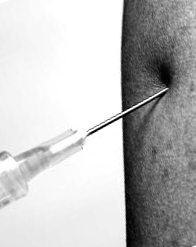Study backs safe injecting
 A review has found that after 21 years, Sydney's supervised injecting centre is a success.
A review has found that after 21 years, Sydney's supervised injecting centre is a success.
Two decades after the establishment of the Uniting Sydney Medically Supervised Injecting Centre (MSIC) research shows that, rather than becoming a “honeypot”, the MSIC has led to improved and sustained public amenity, leading to a call for the establishment of more supervised injecting facilities.
“The MSIC was opened in 2001, following the 1999 New South Wales Drug Summit held in response to the 1990s heroin epidemic that saw sharp increases in opioid overdose death and ongoing blood-borne virus transmission,” expert authors, led by Associate Professor Carolyn Day, from the University of Sydney, write in the latest Medical Journal of Australia.
Despite the supporting evidence backing the MSIC and other facilities of its type, there are currently only about 120 supervised injecting facilities (SIFs) operating globally, with two in Australia.
“The MSIC remains the only NSW service, despite robust arguments for additional facilities in Sydney locations, where opioid overdose deaths have been increasing, including a NSW Special Commission recommendation for more SIFs and multiple Coronial recommendations,” wrote Dr Day and colleagues.
“We have addressed key questions regarding SIF operations and contend that there is sufficient evidence to support SIF rollout and expansion.
“The key themes to emerge are that good policy, with clear legislation and careful management of clients within a harm reduction framework, can and does alleviate problems that may be perceived as inherent to the operation of such services.
“Given the solid evidence, current governments, in Australia and elsewhere, should expand SIF services without unnecessary protracted trial periods. The key challenge in SIF expansion is supporting legislation. In NSW, an amendment to current state legislation to permit more than one facility is required.
“Questions regarding the scientific and operational merit of SIFs have been answered,” Dr Day and colleagues concluded.
“After 21 years of success, it is time for robust support for further services to be implemented both within Australia and internationally.”







 Print
Print